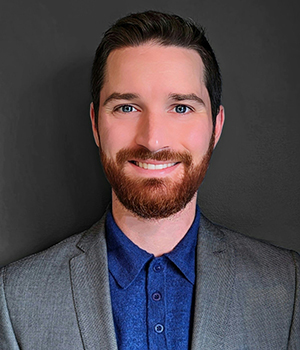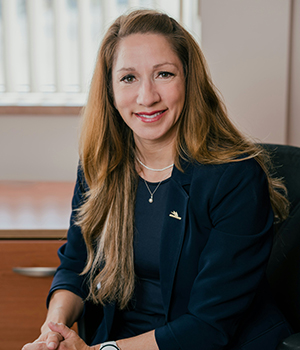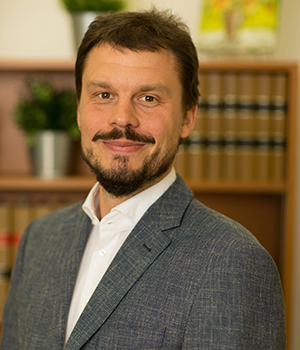Back to program
The Delicate Equation Between Mining Development and Social Acceptability: When Institutions Embody Their Roles in Responsible Development
Wednesday, November 20, 2024
Room 301B - COREM
Explore the challenge posed by the delicate equation between mining development and social acceptability.
The search for critical and strategic minerals, abundant in Quebec’s subsoil and essential to the transition to a greener economy, is driving the development of the Quebec mining sector. However, this expansion is also highlighting the concerns of local and aboriginal communities, both in traditional and non-traditional mining regions.
Speakers will discuss the financial tools and assistance available to host communities to facilitate the harmonious integration of mining projects into their communities.
This session underlines the importance of collaboration and open communication in creating this vision of a Quebec where economic innovation is accompanied by a commitment to ethical and social principles, thereby guaranteeing balanced and sustainable development.
9:00 a.m.
Welcome Address
9:05 a.m.
Participatory Approach to the Harmonious Development of Mining Activities: Main Findings
Conference details
To meet the strong demand for critical and strategic minerals (CSMs) required to manufacture batteries, wind turbines, solar panels, etc., we will need to increase the exploitation and upcycling of these mineral resources. With this in mind, Quebec's mining environment is adjusting and diversifying to meet this demand. Mining exploration activities are expanding into less traditional mining sectors, raising concerns in both indigenous and non-indigenous communities, as well as among land users.
In response to these concerns, the Ministère des Ressources naturelles et des Forêts (MNRF) launched a participatory process in the spring of 2023, involving discussions with the public, First Nations communities and organizations, and stakeholders in the mining sector, in order to gather their concerns and their vision for a more harmonious development of mining activities.
With over 2,500 participants, the public and stakeholders in the mining sector showed a particular interest in improving the cohabitation of mining with other activities in the region, notably through greater involvement of local and regional players, and in reducing the repercussions of mining activities on health and the environment, for instance through improved monitoring. A majority of participants, from all backgrounds, also argued that the benefits for host communities are insufficient and should be increased.
The presentation will address the results of this participatory process, which will guide Quebec in its determination to act and remain at the forefront of best practice in mining activities, particularly in the development of critical and strategic minerals.
9:45 a.m.
Maximizing spinoffs: the key to unlocking the full economic potential of mining projects
Conference details
Maximizing economic spin-offs in the mining sector means ensuring that the benefits of mining operations are maximized for the host regions, for Quebec as a whole, and for local and aboriginal communities. Beyond profits, this means creating local jobs, developing infrastructure, building skills, protecting the environment and actively contributing to sustainable development.
Discover the essential principles for maximizing economic benefits, and the concrete tools a committee can put into action.
10:05 a.m.
Monitoring Committee and Co-construction: Essential Levers for a Harmonious Cohabitation
Conference details
Even in a context that is generally favourable to the mining industry, such as Abitibi-Témiscamingue, the social acceptability of mining projects has been put to the test in recent years.
In 2017, Agnico Eagle's Goldex Complex, which has been in operation since 2008, had to review its community relations strategy in response to changes in its operations and the associated disturbances.
The establishment of a monitoring committee and the subsequent actions undertaken have enabled Goldex to lay the foundations for an evolving community relations strategy based on a co-construction approach with its neighbours. By objectifying concerns through the acquisition of shared knowledge and the co-definition of social performance criteria, this approach now forms the basis of our relationship with the neighbouring community. The result is mutual trust, which is intended to ensure the continued smooth running of operations. It now serves as an example for the development of specific approaches to our new projects.
This presentation will demonstrate how our monitoring committee and our co-construction approach are key factors in achieving harmonious cohabitation.
10:25 a.m.
Social Acceptability Index and Guidelines for Agreements between Mining Companies and the Host Community
Conference details
Energy and mining projects contribute to economic development. However, some of them can be highly controversial. Assessing social acceptability and knowing how to contribute to it is therefore a key factor in the success of these projects. This conference presents two tools. The social acceptability index enables the host community to assess the social acceptability of an energy or mining project. The guidelines for agreements with the host community are a means for companies to identify the conditions for social acceptability of a mining project, and to establish an action plan to achieve it.
10:45 a.m.
Local Voices – Data Science at the Service of Social Performance
Conference details
Measuring social acceptability and meeting the growing demands of communities on mining projects and operations. This is what the Voconiq (Australia) team is doing, in partnership with Transfert Environnement et Société in Canada, through data science-based community perception surveys. The results of these surveys help identify in detail the key social risks and opportunities that exist so developers and operators can build trusting relationships with local communities, by focusing on their needs and addressing their concerns.
11:25 a.m.
End of the session





